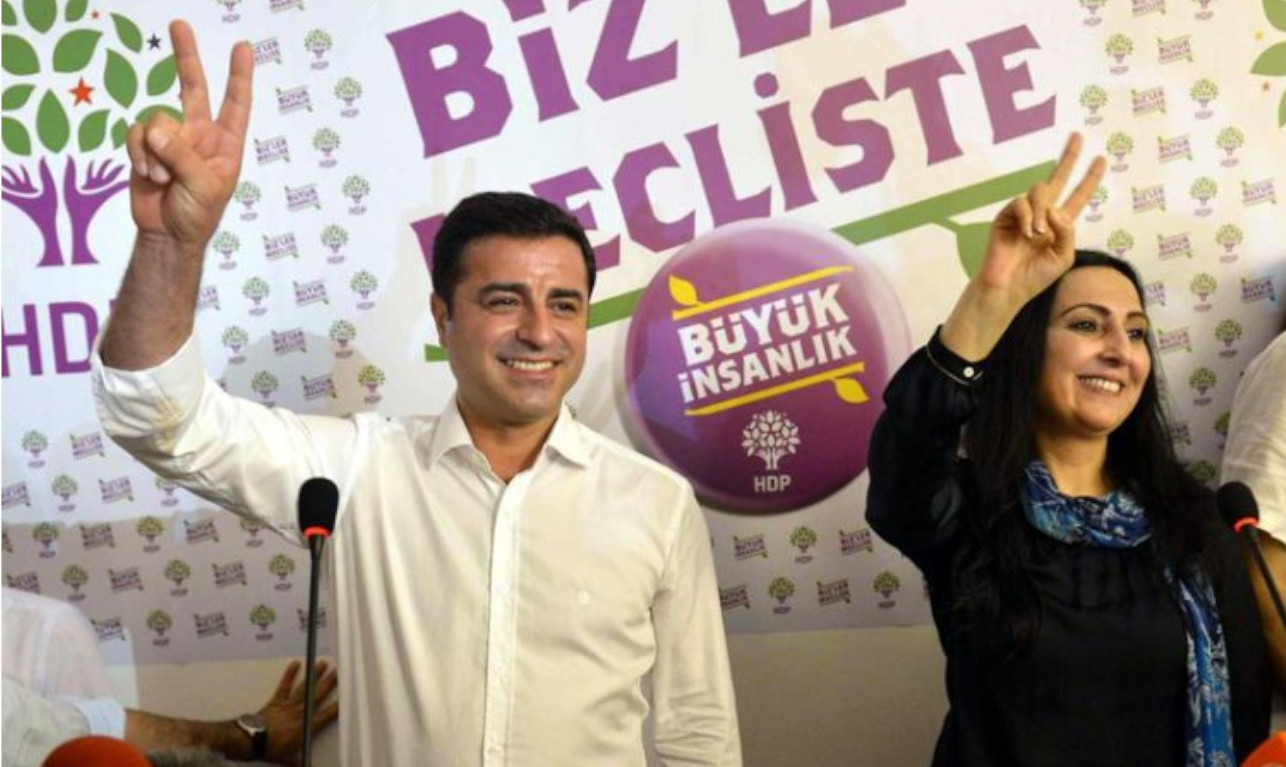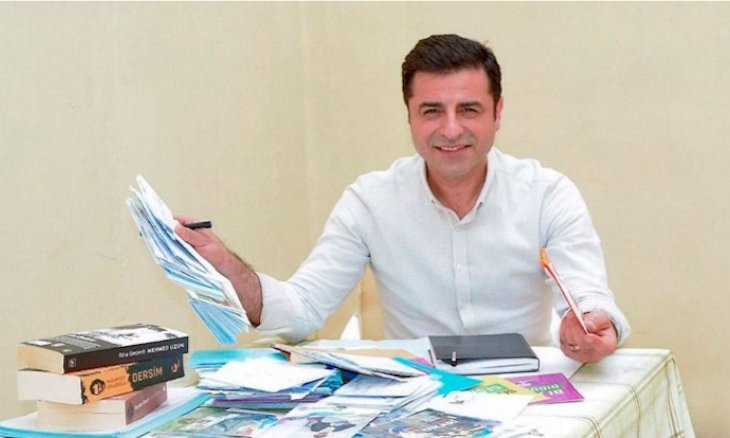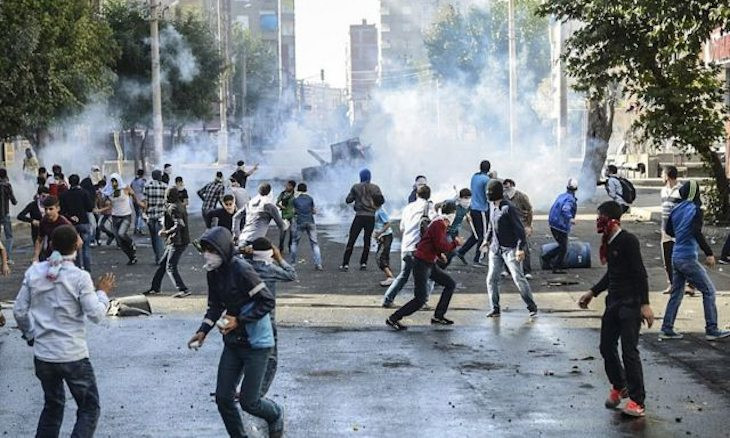Turkish court accepts indictment against 108 people, including Demirtaş and Yüksekdağ, over Kobane protests
An Ankara court on Jan. 7 accepted an indictment against 108 people, including jailed former HDP co-chairs Selahattin Demirtaş and Figen Yüksekdağ, in connection with the 2014 Kobane protests. The indictment accuses 108 people of homicide and disrupting the unity and territorial integrity of the state, and seeks 38 life sentences for each of them.
Duvar English
The Ankara 22nd Heavy Penal Court on Jan. 7 accepted an indictment against 108 people, including jailed former Peoples' Democratic Party (HDP) co-chairs Selahattin Demirtaş and Figen Yüksekdağ, in connection with the 2014 Kobane protests.
The indictment calls for 38 counts of life sentences without parole against 108 defendants, Anadolu Agency said.
The charges include 37 cases of homicide and disrupting the unity and territorial integrity of the state.
Of the defendants, 27 are jailed pending trial, including Demirtaş and Yüksekdağ.
In early October, a Turkish court ordered the pre-trial detention of 17 people, including members of the HDP, in connection with the 2014 Kobane protests.
Protesters flooded streets in Turkey’s mainly Kurdish southeast in early October 2014, outraged over the Turkish government’s inaction in protecting Syrian Kurds as ISIS besieged Kobane, just across the Syrian border. The protests led to the deaths of 37 people, as members of Turkish Hizbullah also took to the streets. Ankara accuses the HDP of inciting violence
The recently launched investigation against the HDP members over Kobane protests is the latest in the government’s crackdown on the party. The HDP is often accused of having links with the Kurdistan Workers’ Party (PKK) and its former co-chairs Demirtaş and Yüksekdağ have been imprisoned for over four years.
Last month the European Court of Human Rights (ECHR) called for Demirtaş's release, saying the justification for holding him for more than four years in prison was a cover for limiting pluralism and debate and the evidence did not back up the terrorism-charges directed at him.
While ECHR decisions are binding, Turkey has ignored several recent rulings. President Recep Tayyip Erdoğan accused the ECHR of hypocrisy after the ruling, saying Demirtaş was a “terrorist” responsible for the deaths of tens of people.
Demirtaş has faced several trials on different charges.
In 2019 a court lifted an arrest warrant in the first case related to the Kobane protests, while another agreed to release Demirtaş given time already served from a previous sentence. But a new arrest warrant related to the same events in 2014 kept him in jail.
The ECHR said his continued detention on such similar grounds would amount to a "prolongation of the violation of his rights."

 Turkish prosecutors file indictment against 108 people, including Demirtaş and Yüksekdağ, over Kobane protestsPolitics
Turkish prosecutors file indictment against 108 people, including Demirtaş and Yüksekdağ, over Kobane protestsPolitics Top Europe rights court orders immediate release of Kurdish politician Selahattin DemirtaşHuman Rights
Top Europe rights court orders immediate release of Kurdish politician Selahattin DemirtaşHuman Rights Gov't rejects HDP's demand to investigate 2014 deadly Kobane protests for 10th timePolitics
Gov't rejects HDP's demand to investigate 2014 deadly Kobane protests for 10th timePolitics